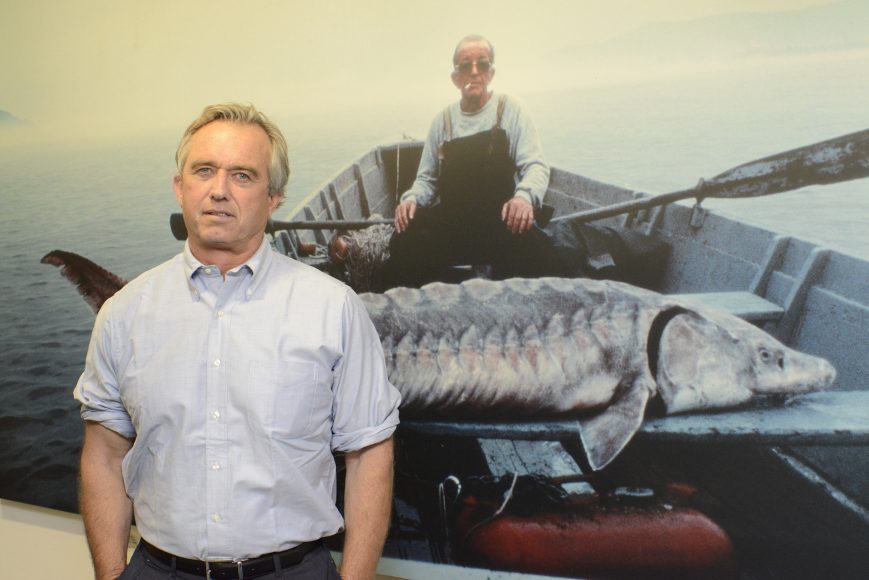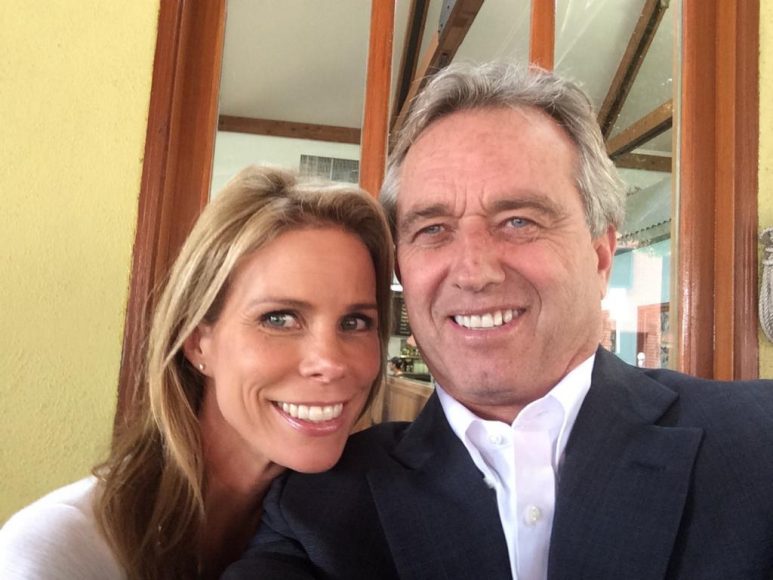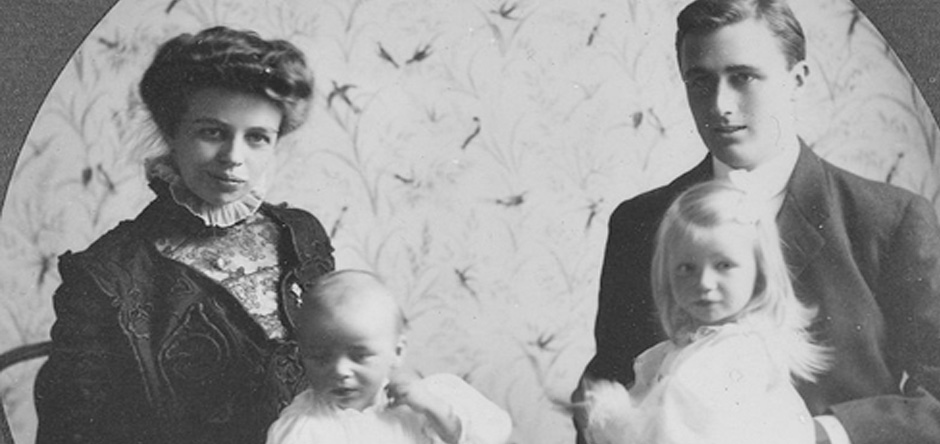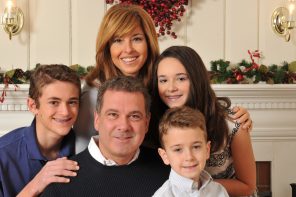On one end of a conference room at Pace Law School sits a stuffed Sumatran tiger, and on the other, a lion of the environmental movement.
Clad in a suit and blue shirt with the sleeves rolled up, his hair parted on one side with a rising wave that evokes his late father, Professor Robert Francis Kennedy Jr. recalled how his career as an environmental activist started early.
“When I was 8 years old, I wrote my uncle, President Kennedy, a letter asking to meet with him about pollution,” says the longtime Westchester County resident. Invited to the White House, the young activist told his uncle that he wanted to write a book about pollution, and his uncle arranged for him to interview the Secretary of the Interior, Stewart Udall, and Rachel Carson, the author of “Silent Spring,” a book about the effect of rampant pesticide use on the environment.
“I always knew I wanted to do environmental advocacy from when I was little, and I always saw pollution as a form of theft, that people had no right to steal the air or the water, that it was part of the commons,” says Kennedy, who graduated from the University of Virginia School of Law – the alma mater of his father, uncle Edward M. Kennedy, and brothers Max and Michael – in 1979.
When Kennedy was in law school, there was only one class offered in environmental law, which had not yet fully evolved as an area of practice. A few years later, when Kennedy was hired by Riverkeeper, a clean water advocacy organization, as its lead attorney, he began taking classes at Pace Law School at night.
“I came back to law school here at night so that I could be a better advocate for my client,” says Kennedy. “After the second year, they began offering the L.L.M. Since I already had half the course load, I just completed it and was the first one to graduate” from the program.
Asked to join the faculty at Pace, Kennedy has lived in Westchester County ever since, in a location that was the cradle of the environmental movement in the United States.
“The first big battle was actually in the 1840s. Washington Irving sued to stop the railroads from being built and stealing the shoreline,” Kennedy, a font of knowledge on the history of environmentalism in the Hudson Valley, says. “He stopped them for about 20 years – for a while, until he got bought off with railway stock.”
It was just over 100 years later, Kennedy explained, that the Hudson Valley became the epicenter of the nascent movement.
“In 1966, it was dead water for 20-mile stretches north of New York City and south of Albany,” Kennedy says. “It caught fire. It turned color depending upon what color they were painting trucks at the GM plant in Tarrytown.”
Around the same time, the Hudson River Fishermen’s Association was formed in Crotonville, seeking to stop the damage to the river. According to Kennedy, the group of anglers had considered more aggressive means than civil suits to protect the Hudson fishery.
“They were talking about blowing up pipes on the river and putting a match to the oil slick on the Penn Central Pipeline and floating a raft of dynamite into the Indian Point power plant intake, because that plant was killing a million fish a day on its intake screens and taking food off of their family tables,” Kennedy says.
However, it was Sports Illustrated outdoor editor Bob Boyle who convinced the group to take a different tack. Boyle, who exposed the state of the Hudson fishery in the April 26, 1965 article, “A Stink of Dead Stripers,” found out that the 1888 Rivers and Harbors Act, which made it illegal to pollute any waterway in the United States, was still on the books – and that people who reported polluters got to keep half the fines assessed.
“That evening he stood up in front of all those people, men and women, with this 19th century statute and says, ‘You know, we shouldn’t be talking about breaking law, we should be talking about enforcing it,’” Kennedy says.
That group later became Riverkeeper, which defends the Hudson against pollution with the help of the Pace Environmental Law Clinic that Kennedy runs. He is president of Waterkeeper Alliance, a group linking more than 250 organizations that fight water pollution.
Kennedy’s legal clinic gives law students at Pace the opportunity to litigate civil cases against companies that pollute the river. Kennedy teaches every Monday, and on Tuesday, the clinic has a case review session, in which the students and professors discuss the progress of the suits.
“We give each of the students four polluters to sue, and they file complaints, they do discovery, they do depositions, they go to court and they argue their cases,” Kennedy says. “They get the kind of responsibility and trial experience here that they probably wouldn’t get until they were five or seven years out of law school.”
With the early part of the week devoted to his academic work, the latter part of his week often takes him outside of the Westchester area. He and his bride, actress Cheryl Hines, recently purchased a $5 million home in Malibu.
“I travel over like 220 days a year,” Kennedy says. “I get a lot of work done on airplanes, and I’m just kind of used to it.”
Hines, whom he married in August in a ceremony on the Kennedy family compound in Hyannis Port, Mass., that was attended by friends, family, and celebrities, maintains an active acting career. Currently between projects according to her husband, Hines’ most notable roles have been as the on-screen wife of Larry David in the HBO comedy series “Curb Your Enthusiasm” and as the superficial Dallas Royce on the Westchester-inspired ABC sitcom “Suburgatory.”
“So far, so good. She spends a lot of time in New York and we end up traveling together,” Kennedy says with a laugh of his bicoastal life. “I have one son who lives out there, and it’s fun to spend time with him and Cheryl out there. But next week, she’ll be in New York with me.”
When Kennedy speaks, it’s clear that New York state’s environment and the Hudson Valley are his passion in life, and he’s not one to hold back his true feelings.
“Right now, we have a market that is governed by rules that were written and rigged by the incumbent polluters to reward the dirtiest, filthiest, most poisonous, most toxic, addictive fuels from hell rather than the cheap, clean, green, wholesome, patriotic fuels from heaven, and we need to change that dynamic,” Kennedy says.
Though he sees progress through new, greener technologies, Kennedy says the battle now is to get those technologies on a level playing field with fossil fuels.
“Wind and solar can now deliver electrons cheaper – far cheaper – than coal or oil, particularly if we got rid of the subsidies to the incumbents and if we force them to internalize their costs,” he says. “Even with the vast subsidies and political preference that’s enjoyed by the incumbents, we’re still beating them in the marketplace.”
The influence of the incumbent polluters, Kennedy says, controls the ballot box through oil wealth pouring in, a lot of it secretly, to the political process.
“I think it’s very, very difficult for anybody who wants to do anything good in Congress or the Senate,” Kennedy says of modern American politics. “We know that in 90 percent of the races, the candidate with the most money wins the race. Our political leaders are not paying much attention to what’s good for our country, or what the people of the United States want. They’re paying attention to what the Koch brothers want.”
Kennedy’s role is to make sure the polluters can do no damage to that which belongs to all of us.
“A lot of what we do is making sure that the public trust, the commons, stays in the hands of the people, that it’s regulated intelligently so that everyone can use it, so that nobody uses more than its’ share,” he says. “Those things aren’t susceptible to private property ownership, but by their nature are the possession of the entire community and the assets of the community, whether you’re rich or poor, black or white, humble or noble.”






